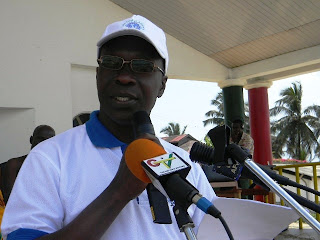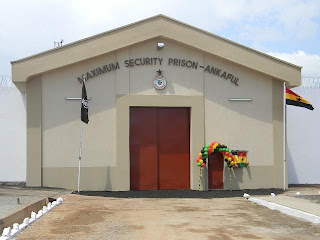By: Micheal Kwame Obeng
 |
| Micheal Kwame Obeng |
The passage of L.I. 1961 integrated the activities of all decentralized departments into the Metropolitan Municipal and District Assemblies (MMDAs) Legally, all resources that were formally under the management and control of decentralized departments were transferred to the MMDAs.
In March, 22, 2011 all human resources were symbolically transferred from decentralized departments leaving the transfer of financial resources to complete the cycle. This is a legal requirement of both the Local Government Act, Act 462 of 1993 and the L.I. 1961.
Composite budgeting is an activity to give complete meaning to fiscal decentralization which has been on the drawing boards of successive governments since the implementation of the current decentralization and the Local Government systems emanating from PNDC Law 207 of 1988. Recent Cabinet’s bold decision to implement composite budgeting is a step in the right direction that needs commendation by all Ghanaians.
All financial plans and programmes of decentralized departments will now be fused together and composed into the budgets of MMDAs. The implementation date is 2012. This is a strategic decision taken by government realizing the enormous benefits to be derived from the transfer of financial resources to MMDAs having already transferred political, administrative and decentralized planning as strategies enshrined in the law.
Before the implementation of composite budgeting, departments of MMDAs had their budgets from the various Ministries, Departments and Agencies (MDAs) that they had held allegiance to, and these budgets did not form part of the budgets of MMDAs. These budgets are now to be integrated into those of MMDAs consistent with good financial management system.
ADVANTAGES: The advantages are numerous. Few among them are as follows:
1. It seeks to introduce uniformity in planning, budgeting, financial reporting and auditing of all MMDAs.
2. It guarantees participatory governance at the MMDA level.
3. It promotes the ownership in the planning and budgeting systems of MMDAs.
4. It facilitates prudent financial management in the MMDAs.
5. Preparation of Warrants will now be done at the MMDAs instead of receiving warrants from Accra thereby cutting down cost, time and the delay in processing Warrants.
PILOTING: Composite Budgeting has been piloted in about 25 MMDAs in Ghana since 2003. The will power to replicate it to cover all MMDAs has been absent until now. The Composite Budget process takes into consideration the preparations, implementation, Monitoring and Evaluation, just like the National Budget Implementation process. This is to ensure that National Budget Classification and harmonized chart of Accounts are used as a pre-requisite of an adequate preparations for the tax ahead in 2012. The evolution of an efficient and effective Public Financial Management system influenced the decision to implement Composite Budgeting.
BENEFITS: Apart from ensuring sound financial discipline in the Public Financial Management System it will also facilitate the following:
1. Fiscal decentralization as enshrined in the Ghana shared Growth and Development Agenda (GSGDA), 2010-2013 thereby promoting the Better Ghana Agenda of the present government.
2. MMDAs will effectively manage critical sectors targeted at the poor in society.
3. Financial reporting and auditing could be consolidated to ensure proper accountability.
4. Duplication of programmes by MDAs will be minimized if not completely eliminated.
5. It will ensure the bottom up approach using the MMDAs as focal points to accelerate development in Ghana.
OBJECTIVES: There are three main objectives. These objectives of composite budgets require the following:
1. Knowledge of the Assemblies financial resources
2. To integrate the various funding sources as well as sectors.
3. MMDAs budgets will be integrated into the National Budgeting System using the MTEF Activity Based Budgeting approach.
The rationale for composite budgeting is to ensure that the complete and total knowledge of the Assemblies financial resources and integrating all funding sources are obtained. It is in fulfillment of the fiscal decentralization policy of government on the principle of “funds follow functions.”
By:
MICHAEL K. OBENG
METROPOLITAN FINANCE OFFICER
CAPE COAST METROPOLITAN ASSEMBLY AND
STUDENT OF EXECUTIVE MASTERS IN BUSINESS
ADMINISTRATION (EMBA)
UNIVERSITY OF GHANA BUSINESS SCHOOL (UGBS)
























